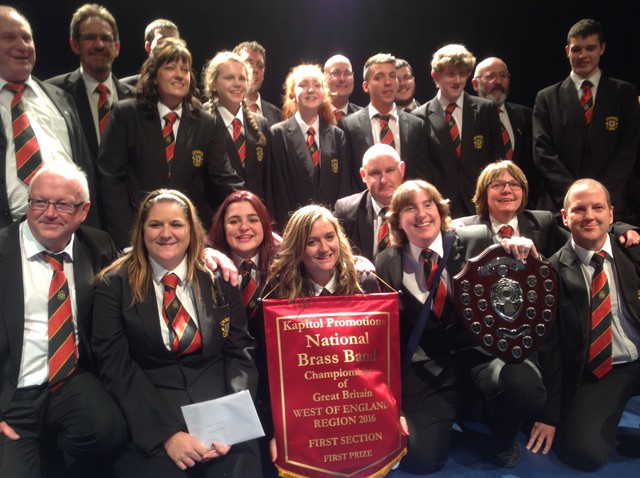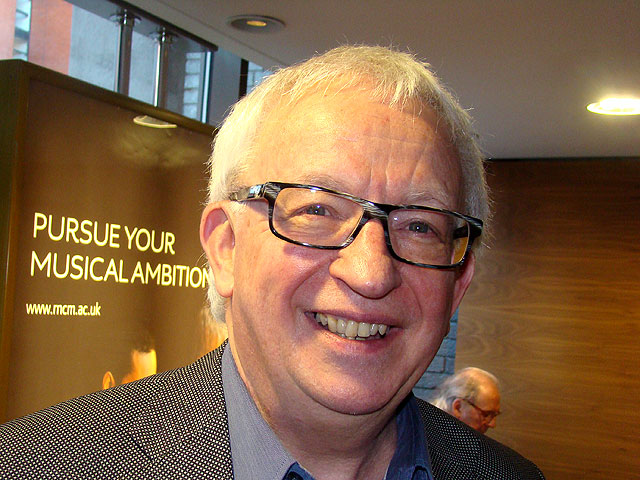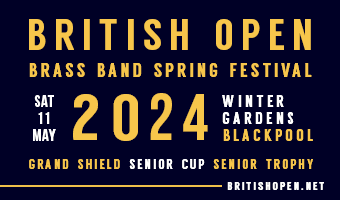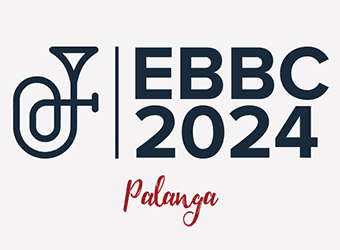Iwan Fox’s recent ‘Regional Reflections’ article offered a number of thought-provoking points of discussion - in particular, the possible outcomes that may arise from the use of Edward Gregson’s ‘Essay’ as the First Section set-work.
In it the 4BR Editor argued that it could be the piece to persuade the regional committees to accept a proposal for the re-structuring of sections (as well as the way promotion and relegation is decided).
He felt that the number of bands (including winners and qualifiers) that "really mastered its transparent challenges", could in his words be counted, “on the fingers of one hand”.
Context
While I fully agree with the sentiment expressed that few bands mastered the piece, it also seems clear that there is a deeper-seated context to the story than bands lacking the necessary technical skills that one might read into his commentary.

St Dennis was one of the few bands to give clear cut answers with their Essay
‘Essay’ is a piece of a classical sincerity rarely found today in compositions intended for our contest stage. It sets out its form in carefully devised musical substructures, written in a harmonic language of chromatic fourths and a rhythmic dialect that permits no imprecision.
It offers substantial challenges that are immediately clear to the listener when not risen to, but that are all too easily overlooked when being performed by those unfamiliar with the idiom. Its style calls for a musical approach that will be familiar to any player that has regularly played in, for example, a symphonic brass 10-piece ensemble, but which is less familiar to many brass band players.
Not revolutionary
Even though it was not revolutionary writing of its time (1970), in the brass band contesting world of 2016, it requires musical thoughts that have been all but submerged in the flood of bland, repetitive writing that we've retreated into in the last 20 years.
With such unfamiliarity, was it a surprise that performance standards were so variable at the Regional Championships in regard to ensemble precision and intonation as well as stylistic nuance?
Familiarity
Familiarity with works such as ‘Essay’ would have meant it being performed convincingly by almost all the bands at First Section level, but with a generation of players and conductors alike having grown up with these types of compositions pushed to the dark recesses of banding libraries, we have collectively forgotten what an accomplished performance of this material sounds like.
This musical amnesia may also point to some of the rather baffling results that the piece inspired around the country, and offers the equally intriguing question: Have some of our adjudicators also lost their understanding of this stylistic medium?
Evidence
The evidence offered at times rather suggested this: A piece written in delicate shades of classically-inspired understatement was not immune to some of the usual fortissimo battles of brazenness, with at times some notably sloppy playing rewarded in the results and excitement rather than examination and exposition winning through.
Our seemingly insatiable desire to impress by volume and technique alone reminds us of a collective responsibility not to lose our appreciation for brass band ensemble playing.

The composer in question
The refined scoring of ‘Essay’ is a masterclass in understatement; the brass band treated as a balanced whole, not the more unequal standard division of banding labour that we are most often asked to play.
Bands struggled, players struggled, conductors struggled and even adjudicators struggled to comprehend its challenges.
Why was this?
Decay
The decay of our tradition of quartet playing that feeds a current lack of small ensemble playing experience is marked - and the resulting consequences are clear.
The invaluable experience gained of regularly playing the likes of Vinter’s fine quartets or the accommodating library of small ensemble repertoire is worth its weight in gold. However, although performance opportunities are not hard to find, the desire to undertake them seems to be limited.
Desire
So too the desire to explore the more aurally austere brass band works spearheaded by ‘Essay’, and which culminated in many respects with the likes of ‘Songs for BL’ and ‘Prague’ - which in 2003 sent much of the movement into full ‘fight or flight’ mode.
Since that time it has become less and less acceptable to employ standard musical tools of dissonance and complexity.
Without wishing to be so unkind as to name names, there are at present composers achieving exposure writing material that commit the opposite sin - a lack of underlying musical adventure that no number of overlaid semiquavers can disguise.
Impression
We give the strong impression of only being open to the musical ideas that we are already completely comfortable with - which to my mind is proving a great hindrance to progress.
In summary, we saw in the performances of ‘Essay’ symptoms of a dangerously inward-looking musical movement - so much so that a piece that was standard fayre a generation ago now provokes a measure of bafflement.
That is not a failure of technique, but a failure of aspiration.
Different reaction
Perhaps a different reflection that stares back at you from the deep well of disappointment that has been dipped into by the 4BR Editor is also clear: Why do we now favour so highly music that demands so little of the musical intellect of the performer and the listener?
The answer is a complex blend of motivations - from our addiction to contesting and our desire to express our technical prowess crowding out pride in our musical knowledge, to our failure to accept that we have regressed where the outside musical world has moved on.
We need to open our ears wider, to regularly listen to, understand, and perform music that challenges our brains again.
Then, and only then, will we be able to successfully understand just why ‘Essay’ showed us that there is a need for change.
David Taylor
About the author
Dave was born in Oxford in 1979. After learning piano from a young age, he took up the euphonium and then bass trombone (on which he was a principal player with the National Youth Brass Band of Great Britain) after joining his local brass band.
He plays trombone and other low brass in ensembles of various types in the Oxford and London areas, and has also been heavily involved with his current band for many years. He has also arranged and composed for brass.
Professionally, he is a scientist working in the field of future energy solutions.











